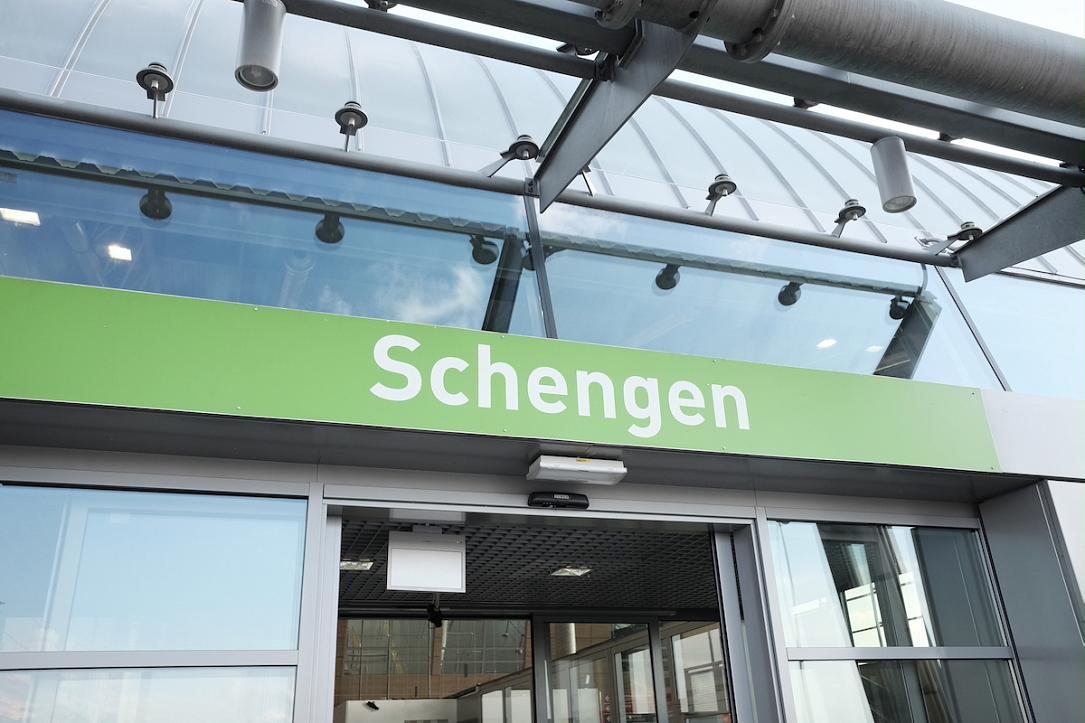Austria proposes conditional "Air Schengen" to Romania, Bulgaria



Austrian media outlets have reported that interior minister Gerhard Karner "softened his stance" on the Schengen matter and now agrees with a so-called "Air Schengen" membership for Bulgaria and Romania under certain conditions.
The results of the proposal remain uncertain given the still unrefined specifications that may make the difference between genuine progress or a new obstacle along the full Schengen membership.
Among others, Austria would reportedly wish the two countries to accept asylum seekers originating from Afghanistan and Syria who arrived on its territory along various routes. Also, some future intra-Schengen borders should be "consolidated" as a condition for the "Air Schengen" - although they should be removed after full membership is achieved.
Austria's minister Karner remains against the two countries fully joining the Schengen area due to "illegal migration concerns." He said that lifting land border controls is the subject of separate discussions.
Furthermore, the conditions that surfaced in the media, not limited to the acceptance of asylum seekers, may complicate the future of the Schengen enlargement process.
The informal proposal was consequently received with caution in Bucharest and Sofia, where only Romanian prime minister Marcel Ciolacu rushed to report it as another success of his recent visit to the United States.
Under the proposed partial Schengen membership, the control requirements for passengers travelling from Romanian and Bulgarian airports to airports in the Schengen area, and vice-versa, would be lifted. However, the biggest problems transportation companies or travellers encounter are at the land checkpoints where the vehicles have to wait long hours.
Furthermore, Austria's interior minister mentioned several conditions for agreeing with the two countries' Air Schengen membership. The final form of the deal will be discussed by Austria with the two Scengen candidate countries in Slovenia on December 12 at the Salzburg Forum – the meeting of a Central European security partnership.
Besides the asylum acceptance condition, Bulgaria should at least triple the Frontex personnel at the border with Turkey; Romania and Bulgaria should receive more funds to strengthen their external border; and the land borders between Bulgaria to Romania and Romania to Hungary "should be consolidated."
While Romanian prime minister Marcel Ciolacu saluted the Air Schengen initiative, interior minister Catalin Predoiu was more cautious, and opposition representatives saw it as a possible "poisoned chalice".
Marcel Ciolacu wrote on Facebook that the ice had been broken, saying the development means that "Romanians will no longer stand in endless queues when they fly within the European Union."
"After years of waiting, we will realize this dream together! Romania deserves to be in Schengen," Ciolacu said.
"The big step was from 'no' to 'yes, but' let's see under what conditions," said, in turn, interior minister Catralin Predoiu, quoted by Digi24.
"[Austria's conditions] are conditions that we are aware of and that we are going to discuss. Some of them help Romania secure its national territory. We have to discuss the others", he added.
Meanwhile, Bulgaria's President Rumen Radev was more direct.
"The conditions the minister sets are unacceptable for Bulgaria," Radev pointed out, according to Blitz.bg. "What the Minister of the Interior of Austria is saying is a step forward, but we have to be very careful. It is critically important for us to open the land borders," he said.
iulian@romania-insider.com
(Photo source: Roberto Pangiarella/Dreamstime.com)